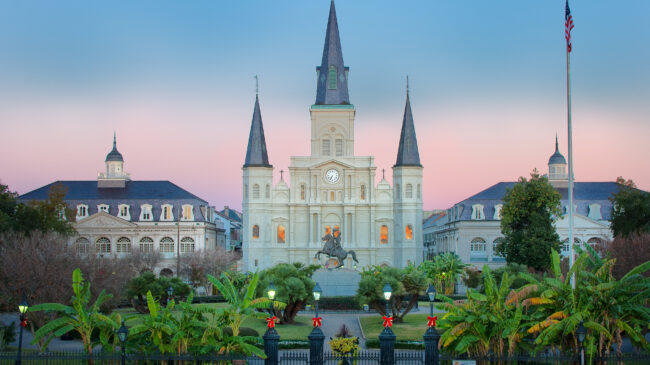In The Supreme Court of the United States
ARIYAN INCORPORATED, DOING BUSINESS AS DISCOUNT CORNER, ET AL., Petitioners
v.
SEWERAGE & WATER BOARD OF NEW ORLEANS, ET AL., Respondents.
On Petition for Writ of Certiorari to the United States Court of Appeals for the Fifth Circuit
Brief of Amici Curiae Reason Foundation, Southeastern Legal Foundation, National Association Of Reversionary Property Owners, and Professor James W. Ely, Jr.,
Does the Fifth Amendment’s self-executing command that the government justly compensate an owner when the government takes private property mean the government must promptly pay the owner or does the owner’s right to compensation depend upon the legislature appropriating funds to compensate the owner?
The Sewerage & Water Board of New Orleans (Sewerage Board) took private property from seventy owners. The Sewerage Board did not pay the owners but forced the owners to go to court and sue for compensation. The owners won. Two Louisiana state courts held the Sewerage Board took these owners’ private property and must pay the owners $10.5 million in compensation. Ariyan, Inc. v. Sewerage & Water Board of New Orleans, 29 F.4th 226, 228 (5th Cir. 2022). There is no dispute about this. But, instead of paying the owners, the Sewerage Board said, “sorry, we didn’t appropriate the money.”
The owners went to federal court to enforce their Fifth Amendment right to compensation. But the district court dismissed the owners’ claim, and a panel of the Fifth Circuit affirmed, contrary to this Court’s holding in Knick v. Township of Scott. The Fifth Circuit panel wrongly supposed the Fifth Amendment guarantee of “just compensation” depends upon legislative grace. The Fifth Circuit wrongly premised its opinion upon a misreading of this Court’s decision in Folsom v. City of New Orleans, 109 U.S. 285 (1883), condemning these owners to a “Folsom Prison” in which the government may take their property but never pay.
